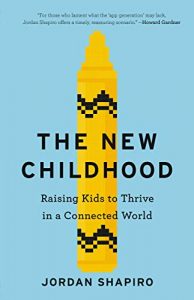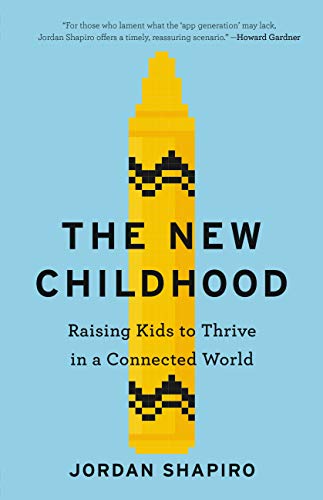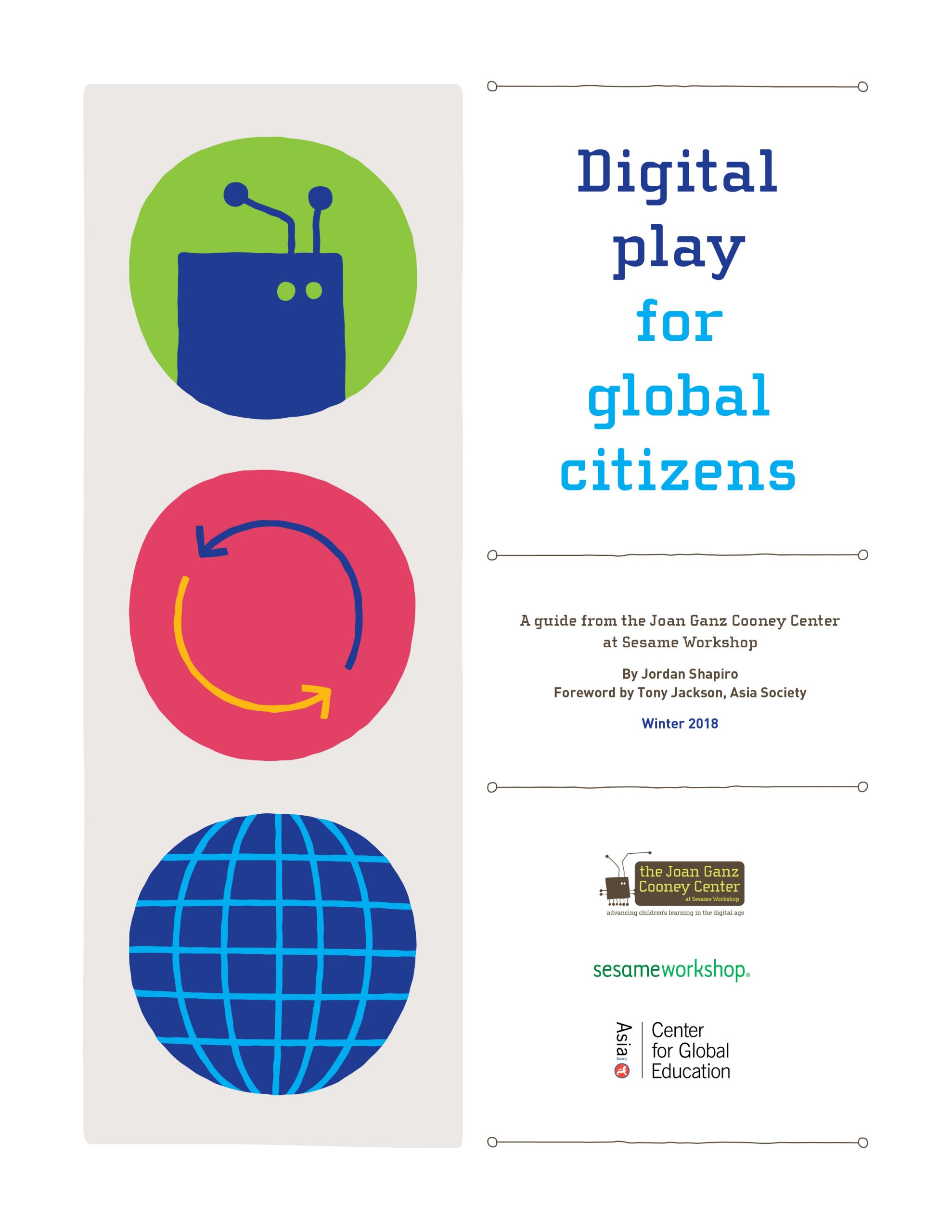Jordan Shapiro, author of The New Childhood: Raising Kids to Thrive in a Connected World, recently took the time to answer questions that readers submitted. See more questions and answers here.
Our sixth grade grandson spends much of his middle school day on the computer, does homework on the school-provided ChromeBook he brings home, and then wants to connect with friends after school on his iPhone. Even if screen time is limited at home, what can be done to balance the hours of school screen time?
One of the things I write about in the book is that so many of our current school practices are connected to the tools and technologies of the past. We’re not just teaching students content like math, history, science, and literature, we’re also teaching them how to apply that content in specific instrumental ways. We are teaching them how to use it within a particular technological and economic context.
Consider how much of school is technological. The chalkboard is a kind of technology. The pencil. The desk. The school bell. The report card. These are all tools. They are also all products of the industrial age. And therefore, they maintain and reinforce the epistemological customs of the industrial age. Similarly, so many of our pedagogical practices—like the lecture, the exam, the worksheet—can be understood as technological. They function, almost algorithmically, as ways to promote industrial age habits of mind. But now the world is changing.
Let me give you one example. If you think about math education, we know that children need to learn mathematical thinking. This will probably never change. But what you do with that thinking has changed many times. You no longer need to know how to operate an abacus. In fact, nowadays you no longer need to be able to solve a problem on paper. We all carry computers in our pockets that can do this much more efficiently and accurately. Of course, our children still need to understand the theory well enough that they know the right ways to use these powerful tools. And they may need to do a lot of pencil-and-paper work in order to comprehend the theory. But ultimately, we should no longer be assessing how well kids solve equations; we should be assessing how well they can understand and identify ways to input complex mathematical problems into computerized systems. Long division is now all about theory, spreadsheets are the new skillset.
Therefore, we shouldn’t worry too much about how much “screen time” kids get at school. We should worry about how that screen time is used. Is it effective? Are the learning games being integrated into the curriculum and the pedagogy, or are they just being used as rewards for completing the old worksheets? Is school screen time organized in such a way that it promotes habits of mind for a connected world, or is it just trying to teach old skills in new ways (a kind of techno-fetishism)?
I am increasingly worried about the collection of our children’s data by various companies. By the time they are adults, there will likely be very detailed profiles available about their past experiences and habits. Is there anything that parents should be thinking about now to safeguard their children’s privacy?

I agree with you wholeheartedly! Parents should be worried about their children’s privacy…and also their own.
When it comes to data, artificial intelligence, and machine learning, we’re talking about a huge contextual change in the way human civilization organizes itself. And there are so many big societal issues around technology that will likely need to be addressed through government policies. I avoided a lot of these questions in The New Childhood because didn’t want to put the responsibility for this on parents, teachers, and caregivers alone. It’s so much bigger than that. Plus, a comprehensive examination of the policy issues was outside the scope of the book.
I wish I could give you clear and concise advice, but I can’t. Telling you to read the End User License Agreements (EULA) carefully is a start, but it’s somewhat unrealistic. And unfortunately, it won’t help much because so far, we’ve organized our current digital economy in such a way that one can’t participate without surrendering an inappropriate amount of personal data.
Currently, in the US, we have a few laws, like COPPA, which try to address this for kids under 13 years old. But ultimately the policies that exist remain inadequate. What does that mean for you? Well…if you’re the activist type, I’d encourage you to get involve with organizations like the Mozilla Foundation. If you’re not, call or write to your representatives and let them know you’re worried about this issue. As you know, this is how our democracy functions.
Also, remember that in the long run, solving these problems through policy will require raising citizens who have enough technological literacy that they’ll be able to democratically address the unique social and economic challenges of a connected world better than we have.
Do you have a list of great games by child age, that you could recommend for family play? For instance, years ago we found Dragon Box which is a game that teaches young children algebra concepts…It would also be amazing to have digital game suggestions listed by topic, or specifically appropriate for families to engage in together!
We’ve run a bunch of great blogs about that on this website, and even created a guide for families to use apps together. You might also want to check out the App Fairy podcast, in which youth services librarian Carissa Christner interviews some of her favorite children’s app makers—she also curates a list of recommended apps. You might also want to check out Families at Play: Connecting and Learning through Video Games by Sinem Siyahhan and Elisabeth Gee.
These days, we don’t keep a current or running list of recommended games or apps, but we can recommend other resources that provide great reviews, including Common Sense Media, Children’s Technology Review, Parents’ Choice Foundation, Teachers with Apps, and School Library Journal.


